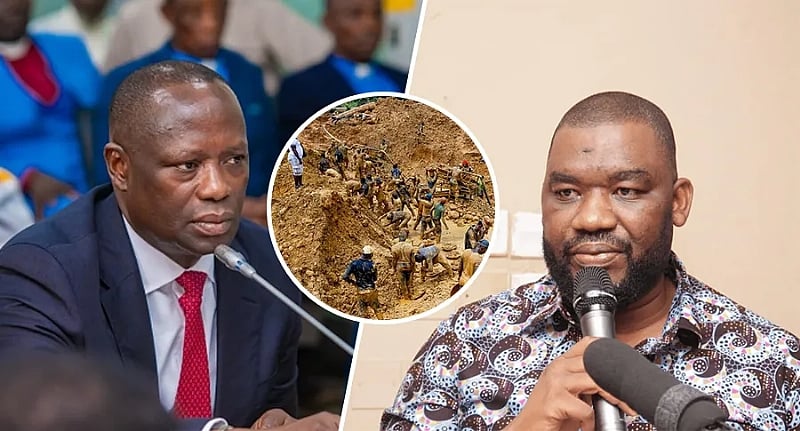The Ghana Mineworkers’ Union (GMWU) has issued a clarion call for governmental transparency regarding the future of the mining industry in Ghana. The imminent expiration of Gold Fields’ Damang mining lease on April 18, 2025, coupled with the government’s refusal to grant an extension, has ignited concerns about policy direction and investment security within the sector. This specific case underscores a larger issue: the lack of a clearly articulated and publicly disclosed mining policy from the government, creating uncertainty that could deter both domestic and foreign investment. The GMWU argues that this ambiguity not only jeopardizes the livelihoods of thousands of workers and the viability of local businesses but also undermines Ghana’s reputation as a reliable destination for mining investment.
The heart of the matter lies in the government’s opaque stance on its long-term vision for the mining industry. While the expiration of the Damang lease is a legal procedure, the law also allows for renewal negotiations, a route that the GMWU strongly advocates. The union’s General Secretary, Mr. Abdul-Moomon Gbana, emphasizes the importance of dialogue between the government and Gold Fields to avert a potential shutdown of the Damang mine. However, he stresses that this specific instance exemplifies a deeper systemic issue: the absence of a clearly communicated national mining policy. This lack of transparency, according to Gbana, fuels speculation and anxiety among stakeholders, including investors, workers, and local communities reliant on the mining sector.
The GMWU’s appeal for policy clarity resonates with the broader need for a predictable and stable investment climate. Gbana contends that the government’s silence on its mining policy direction creates an environment of uncertainty that discourages investment, both foreign and domestic. Potential investors, unsure of the government’s long-term goals and regulatory framework, are likely to hesitate before committing capital to projects in Ghana. This hesitancy, in turn, could stifle economic growth and development, particularly in regions heavily dependent on mining activities. The union emphasizes that a clear policy framework, openly communicated, is essential for attracting and retaining investment, ensuring the long-term health of the mining sector, and maximizing its contribution to the national economy.
The Damang lease issue serves as a microcosm of the larger challenges posed by policy ambiguity. Should the mine cease operations due to the lease expiration, the consequences would be far-reaching. Job losses would be inevitable, impacting not only the mine’s direct employees but also the wider network of businesses providing goods and services to the mine and its workforce. The ripple effect would extend to local communities, where the mine plays a significant role in the local economy. Beyond the immediate economic repercussions, the non-renewal of the lease could set a worrying precedent for other mining companies operating in Ghana, further eroding investor confidence.
The GMWU’s concerns extend beyond the immediate impact on Gold Fields and the Damang mine. They highlight the potential for a chilling effect on the entire mining sector if the government fails to articulate a clear and consistent policy. The absence of a roadmap for the industry creates a breeding ground for speculation and uncertainty, making it difficult for companies to plan long-term investments. This ambiguity also raises concerns about the government’s commitment to fostering a stable and predictable investment environment, a crucial factor in attracting both domestic and international capital. Without a clear policy framework, Ghana risks losing ground to other mining jurisdictions that offer greater transparency and predictability.
The union’s call for clarity is not simply a plea for information; it is a call for responsible governance. A transparent and well-defined mining policy is not merely a bureaucratic exercise; it is a fundamental element of a healthy and sustainable mining sector. It provides a framework for responsible resource management, ensures equitable benefit sharing, and safeguards the interests of all stakeholders, from multinational corporations to local communities. The GMWU’s insistence on a clear policy direction is therefore not just about the future of the mining industry; it is about the future of Ghana’s economic prosperity and social well-being. The government’s response to the Damang lease issue and its broader approach to mining policy will be a crucial test of its commitment to fostering a transparent and investor-friendly environment.


